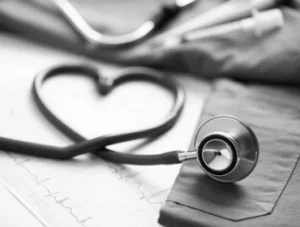
Late-stage, or end-stage alcoholism, is a full-blown addiction to alcohol, often with damaging physical and mental health effects. Alcohol detox and treatment are nearly always necessary at this stage. End-stage alcoholism, or late-stage alcoholism, is the final stage of an alcohol use disorder, resulting in serious physical and mental conditions as well as other life consequences from years of alcohol misuse. Over half of alcohol-related deaths are because of health effects from drinking too much over time. It can lead to things like cancer, liver disease, and heart disease. But drinking a large amount of alcohol in a short period of time can also be deadly.

What is the outlook for people with alcohol-related liver disease?

Recovery will not be easy at this point, but it will be worth the work. Now is the time to line up support from addiction specialists, mental health professionals, friends and family, and others living with an alcohol use disorder. While the occasional alcoholic drink is not usually harmful, excessive alcohol consumption can lead to a number of health consequences. It can raise your risk for heart disease, various types of cancer, high blood pressure and, of course, alcohol use disorder. Drinking can also lead to injuries and death by accidents, including motor vehicle crashes and falls, and can result in social and legal problems.

How these deaths were estimated
This can also lead to anemia, when your red blood cell (RBC) count is lower than normal or there’s a problem with the hemoglobin protein inside those cells. According to research, more men die from alcohol-related death than women. But women are more likely to experience domestic abuse or sexual assault when alcohol is involved.
- When they do attempt to stop drinking, they may experience withdrawal symptoms.
- Once it takes hold, it can be hard to shake loose—without the right help.
- Initiatives aimed at early screening in non-traditional settings, such as schools may help early detection and lead to more timely linkages of individuals to treatment resources.
- Cirrhosis can cause a host of other health problems, including high blood pressure, which can lead to the development of enlarged veins in the esophagus called esophageal varices.
- From 2012 to 2019, the year over year rise in deaths rates averaged about 4% per year, and then jumped during early pandemic years, with the biggest rise from 2019 to 2020.
Early Drinking Linked to Higher Lifetime Alcoholism Risk
Department of Health and Human Services since 2017, no similar declaration exists regarding alcohol deaths. However, HHS has set a priority goal of reducing emergency department visits for acute alcohol use, mental health conditions, suicide attempts, and drug overdoses by 10% by do alcoholics die early 2025. Cirrhosis of the liverOur liver filters out harmful substances, cleans our blood, stores energy and aids in digestion. Too much alcohol can be toxic to liver cells, causing dehydration and permanent scarring—which ultimately affects the blood flow. With excessive alcohol consumption, this important organ can’t metabolize Vitamin D, which could develop into a deficiency.
Tolerance and Cell Resistance to Alcohol

In the end-stages of alcoholism there are noticeable health conditions, like jaundice, from liver failure. There are also more subtle signs like itchy skin, fluid retention, fatigue, and bleeding. If you know someone who drinks regularly and has these symptoms, have them reach out to a treatment provider to discuss their treatment options. End-stage alcoholism is Sobriety the final, most destructive stage of alcoholism. Typically, an individual reaches end-stage alcoholism after years of alcohol abuse.
- We strive to create content that is clear, concise, and easy to understand.
- They may appear red in the face or look bloated and generally unwell.
- When the normally high level of alcohol in a person’s body begins to drop, they may feel physically ill.
- At this point, it’s obvious to those close to you that you’re struggling.
- It’s not often talked about, but left untreated, alcohol use disorder can be a fatal disease.
Those in the end stage of alcoholism, or late or deteriorative stage, are consumed by their drinking. Years of chronic alcohol consumption have ravaged their body and mind, and their lives revolve around little else other than the bottle. As the disease progresses to the middle stage, drinking continues to increase and dependency develops.
- According to the American Dietary Guidelines, moderate alcohol intake includes two drinks or less in a day for men or one drink or less in a day for women.
- Call our hotline at today to speak with an admissions navigator about treatment options for your loved one in order to help with their drinking problem.
- As a person with a high tolerance continues to drink heavily, their body adapts to the presence of alcohol.
- This is a condition known as esophageal varices, and it can develop in people with alcohol-related hepatitis or cirrhosis.
- At this point, drinking is no longer just a casual social activity — it’s become a daily habit that may be used to cope with stress, anxiety or other emotional problems.
But for a person who drinks heavily, the body adapts the majority of the time. This can make it more difficult to show the effects of intoxication. Eventually, their tissue cells may become dependent on alcohol to function normally. When most people drink to their tolerance level, they exhibit signs of intoxication. Those signs include slurring words, loss of balance and poor physical coordination. Alcoholism is a chronic disease that progresses through early, middle and late stages.
What are the risk factors for alcohol-related liver disease?

Aug. 14, 2024 – People over age 60 who drink alcohol regularly are at an increased risk of early death, particularly from cancer or issues related to the heart and blood vessels. In addition to asking about symptoms that might indicate ALD, the doctor will ask questions about the patient’s consumption of alcohol. The patient may need to fill out a questionnaire about his or her drinking habits. At this stage, depending on the patient’s use of alcohol, the doctor may diagnose alcohol use disorder.













